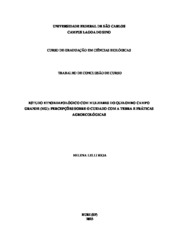Estudo etnoedafológico com mulheres do quilombo Campo Grande (MG): percepções sobre o cuidado com a terra e práticas agroecológicas
Resumen
Considering the problematics around soil degradation, the research talks about an ethnoedaphological survey about women’s perception of the Quilombo Campo Grande (MG) settlement, regarded to soil care. The main objective of this survey consists in developing thoughts about how, among the uncertainties and changes of daily life, rural women recreate social practices that enables their being-in-the-world and their being-with-others from soil care, also seeking to aggregate theoretical reference to the development of studys that approach soil maintenance from the social, cultural, ethnical and economical local contexts. The gathering and analysis of data were divided in: (1) bibliographical review; (2) semi-structured interviews with four women settled at Quilombo Campo Grande; (3) participant observation; (4) triangulation of collected data; (5) handling techniques systematization which correspond to soil care practics.Therefore, the research intends to contribute with studies that consider soil care and agroecology as means to an alternative development to what’s proposed by the hegemonic system. The results obtained suggest that soil care symbolizes, beyond a sustainable handling, a resistance act, of emancipation and consistent social changes in what concerns nature’s preservation and food sovereignty. Thus, from the political perspective, beyond the ontological, the survey brings care as a social practice and discusses the necessity of soil care socialization/ de-feminization as a mean to the social construction of agroecology in our territories.
Colecciones
El ítem tiene asociados los siguientes ficheros de licencia:

